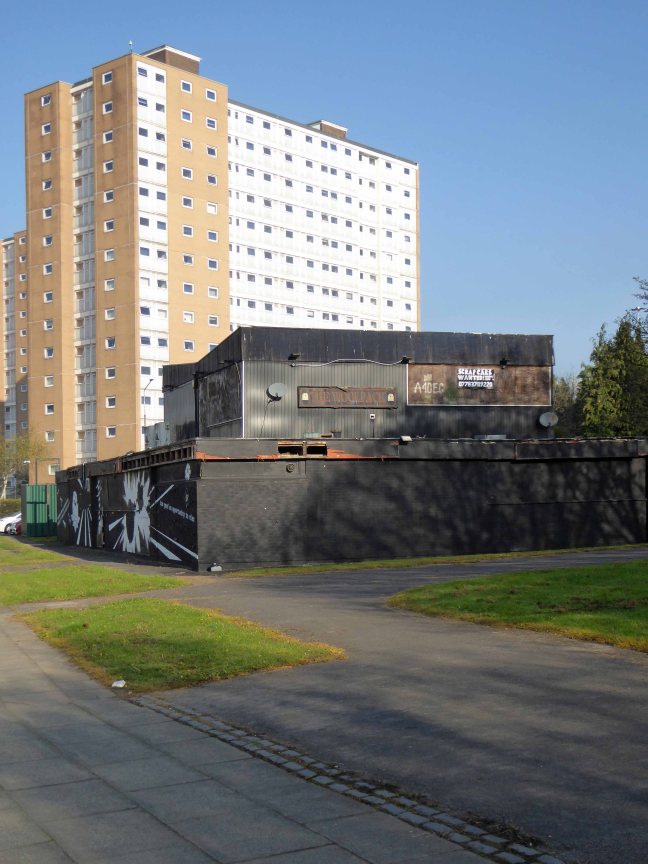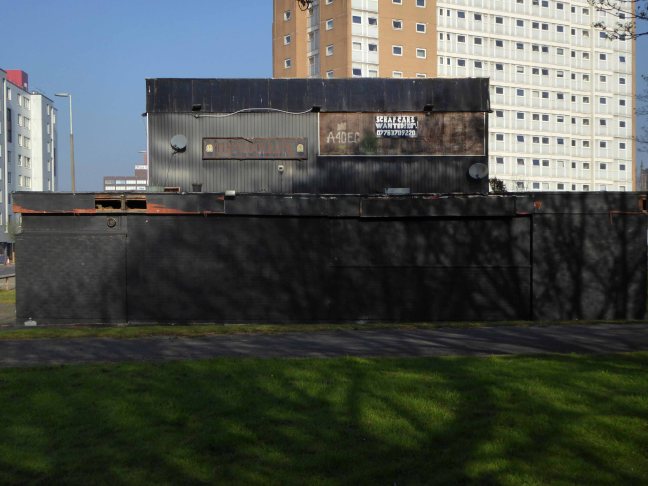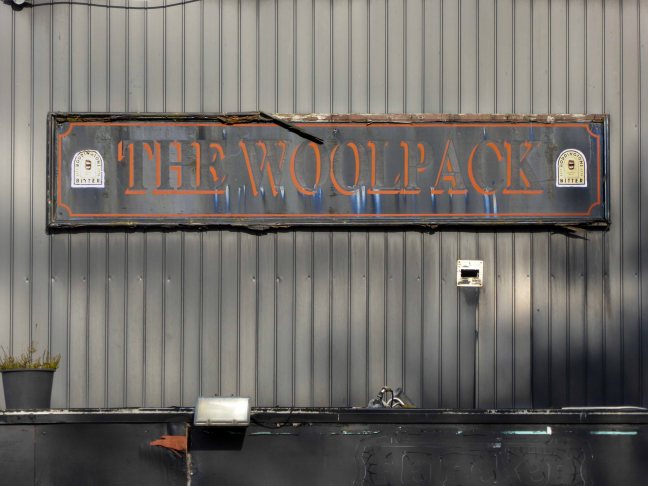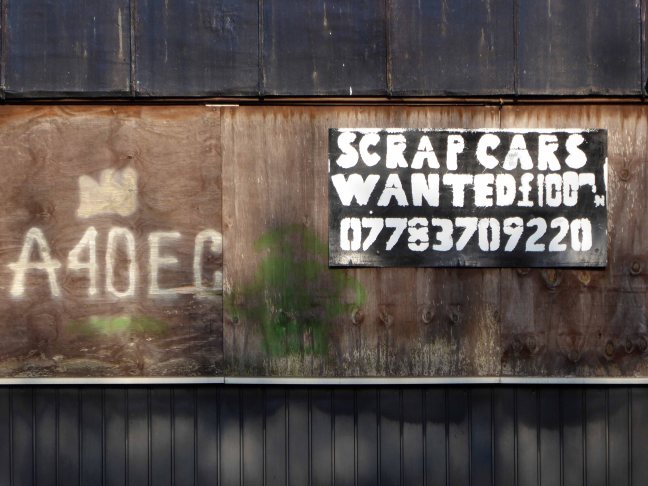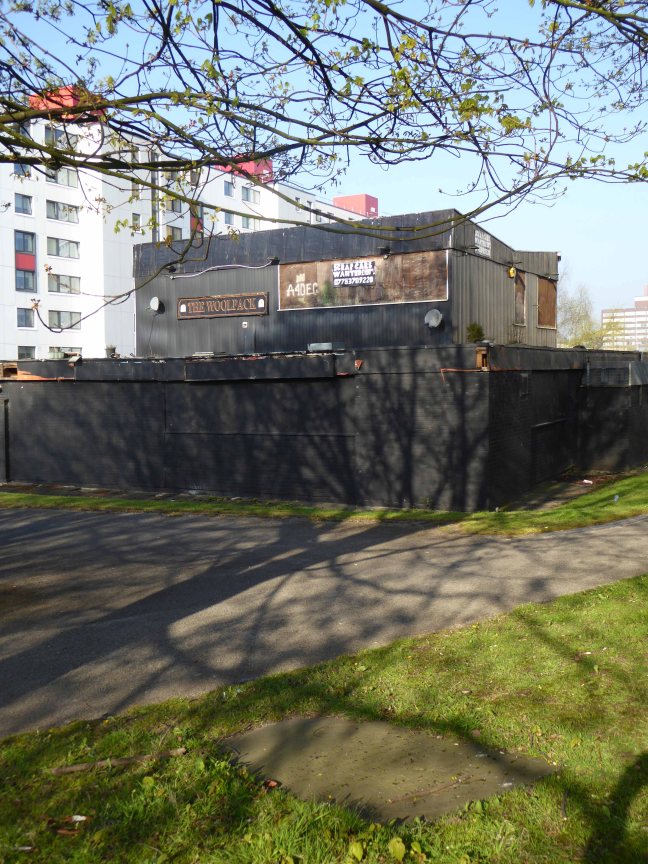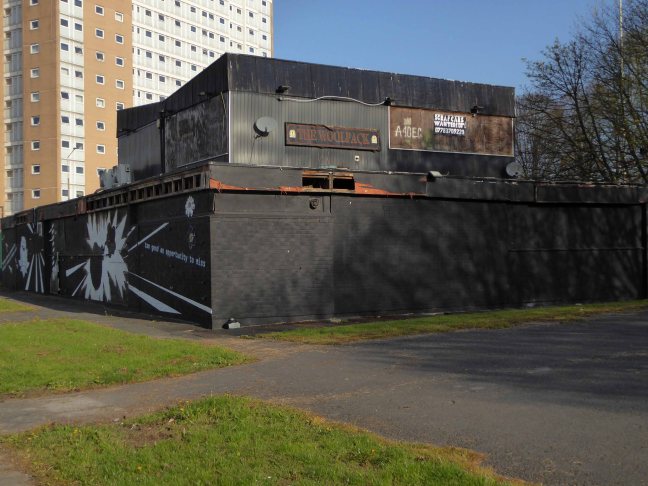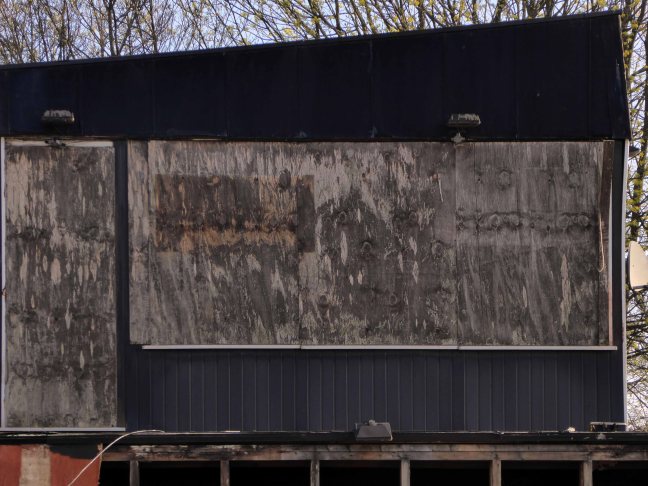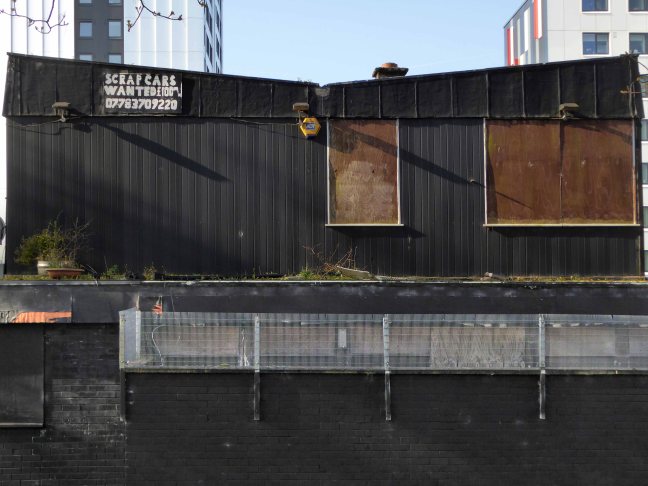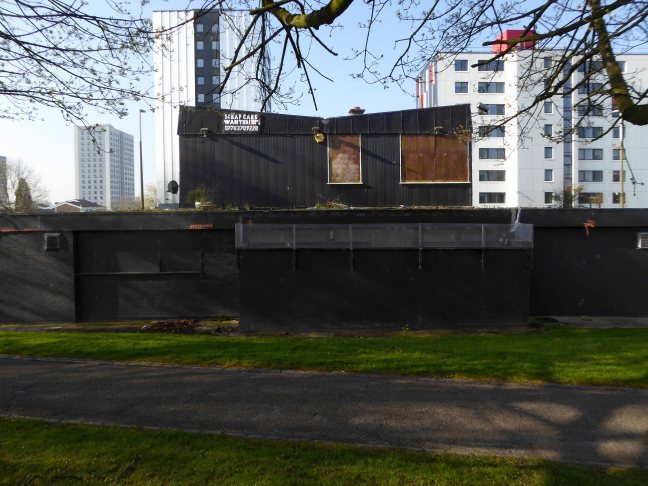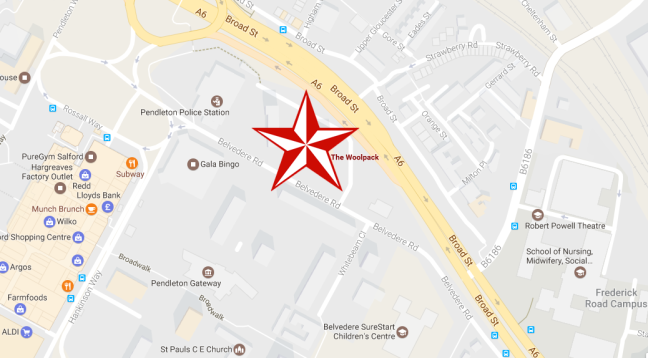
Belvedere Road, Pendelton.
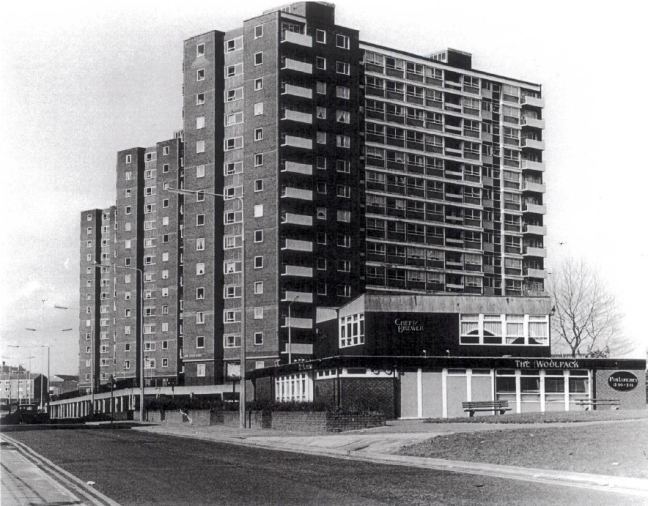
Once one of five pubs to serve the area, an area of newly built and bustling estates, The Woolpack has finally called and served its time. Despite local residents’ moves to revive this once busy pub, it now stands lost and alone .
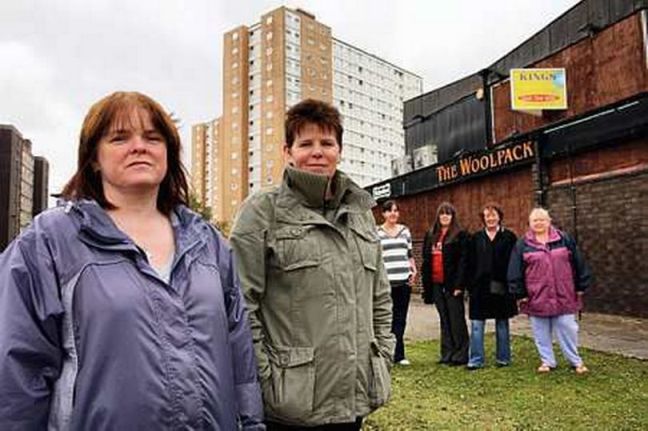
Gene Houghton of Sycamore Court, Pendleton, said:
It was and will always remain the best pub in Salford.
When these doors closed last year a community closed with it. People come from near and far, everyone knew each other and it was a pleasure to go to.
The entertainment was second to none, especially on a Sunday afternoon. It was a fantastic place.

Even the well intentioned intervention of Happy Monday’s Bez and co has seemingly failed to halt the forces of free market economics and industrial decline
So in area now awash with the great unwashed and ever expanding student population, whose social needs are quite possibly met elsewhere, it remains decidedly:
Closed.
